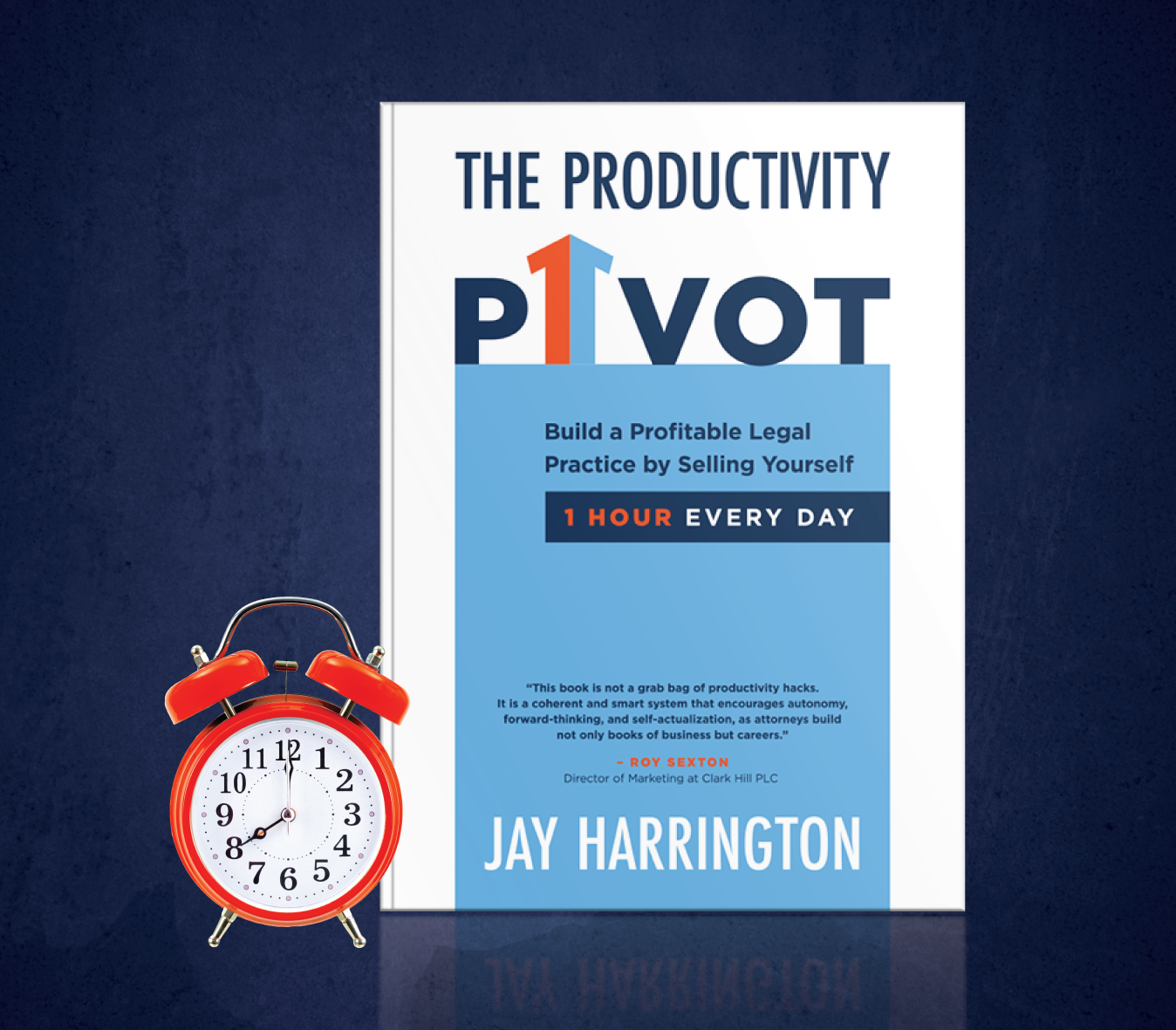Posted on August 12, 2020 by Jay Harrington
 If I was to offer you $100 today or $120 a week from now, which would you choose? While thought experiments aren’t the same as real-world experiences, if you’re like most people you’d choose the hundred bucks now. That’s the conclusion of a classic study which found that, when it comes to making decisions, most of us opt for immediate gratification.[1]
If I was to offer you $100 today or $120 a week from now, which would you choose? While thought experiments aren’t the same as real-world experiences, if you’re like most people you’d choose the hundred bucks now. That’s the conclusion of a classic study which found that, when it comes to making decisions, most of us opt for immediate gratification.[1]
Why does this matter? Well, succeeding in a law firm is all about balancing your desire for short-term versus long-term rewards, and prioritizing your time and attention in congruence with your personal objectives.
For example, an associate who has no intention or desire to make partner at a law firm would likely optimize for the billable hour, because the economic incentives in most law firms would provide them with greater short-term financial rewards for doing so.
A long-term thinking associate who hopes to make partner, however, would balance billable time with a greater emphasis on non-billable time. They would understand that the old apprenticeship law firm model, in which associates were (and, in some cases, still are) encouraged to “keep your head down and do good work” has changed. They would appreciate that associates who are elected into a partnership are those who have unique skill sets and demonstrable business development acumen. These qualities—unique skill sets and business development acumen—take considerable amounts of time and effort to develop, so if partnership and its long-term rewards are the objective, the rational thing to do would be to invest in them throughout one’s career as an associate.
The same is true of a partner hoping to build a book of business. One of the most effective ways to generate business is to become known as a narrowly focused expert within a particular industry. It’s not that being a well-rounded lawyer is a bad thing. A lawyer with depth and breadth of knowledge is obviously a valuable asset to a client. The problem is that positioning oneself as providing “full service” or possessing “general knowledge” is often ineffective from a brand-positioning standpoint. Lawyers who cast really wide nets believe that chasing the biggest market possible offers them a better opportunity to acquire a greater number of clients. But most quickly learn that the exact opposite is true. You can’t be all things to all people and expect to make an impact. Clients are seeking out specialized experts to solve specific problems.
Building a niche-focused practice, however, is a long-term proposition. The rewards that await at the end of the process are significant, but it can take a long time—often years—of concerted, focused effort to get to the point where you’re generating the inbound opportunities and high hourly rates that narrowly focused lawyers command. During the process of trying to build a niche practice, many lawyers get off track because they can’t resist taking on matters that fall outside of their areas of focus. These short-term diversions distract them from what they’re trying to build. One case leads to another, and before long they’re taking on whatever comes in the door. As a result, they never develop the expert reputations they set out to build, and they end up in an endless cycle of chasing commodity work throughout their careers.
The point is, we’re all affected by cognitive biases that lead to suboptimal decision-making. While we all prefer big rewards over smaller ones, most of us have an even stronger preference for present rewards over future ones—even when the future ones are much more valuable. This phenomenon, a type of cognitive bias, is called “hyperbolic discounting.” It stands for the proposition that the further away a reward is in the future, the less of an immediate motivation there is to put the work in to realize it. Therefore, the tendency to value short-term rewards is a drag on one’s ability to achieve long-term success. The types of actions that are going to make you look good in the short term, such as optimizing for billable hours over engaging in business development, are what will hamper you over the long term.
When you have a clear vision for the future, however, it’s far easier to resist the allure of short-term thinking, and to accept the trade-offs that are required along the way to realize your vision.
Publisher's Note: This is the first in a series of excerpts we are publishing from Jay Harrington's new book, The Productivity Pivot. Click here for more information about Jay and to purchase a copy of the book.
[1] https://web.mit.edu/curhan/www/docs/Articles/biases/5_Psychological_Science_33_%28Green%29.pdf
